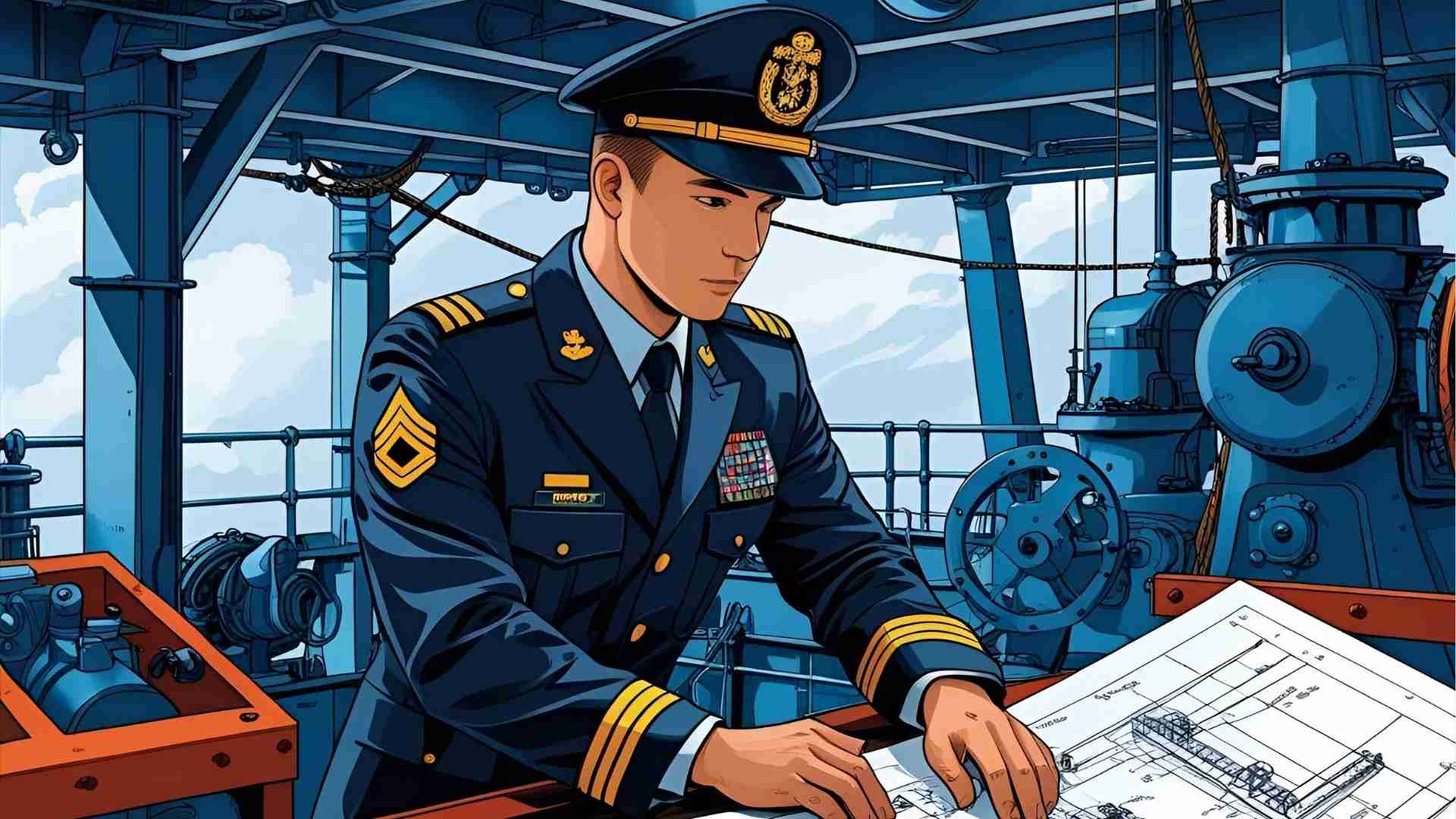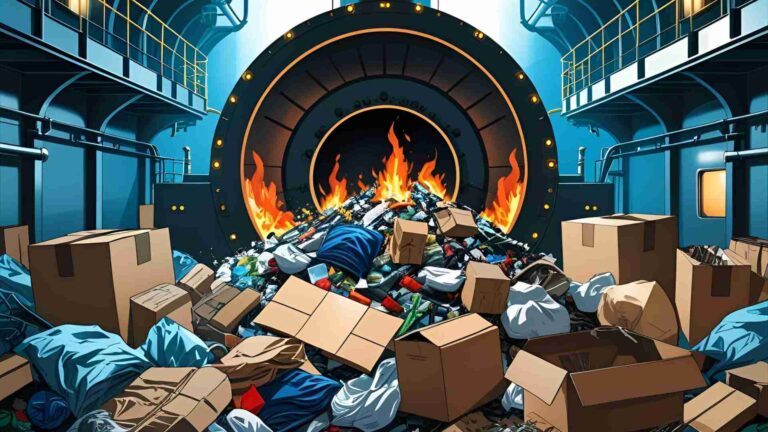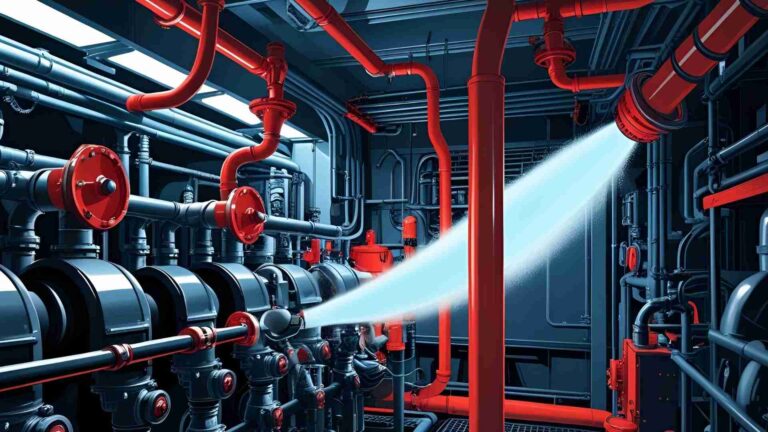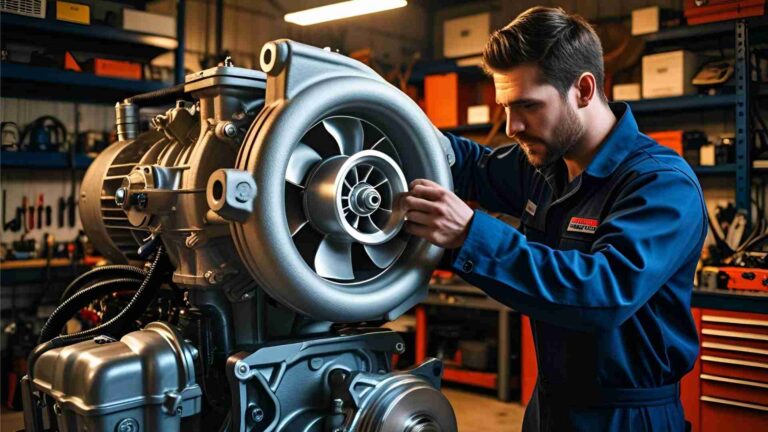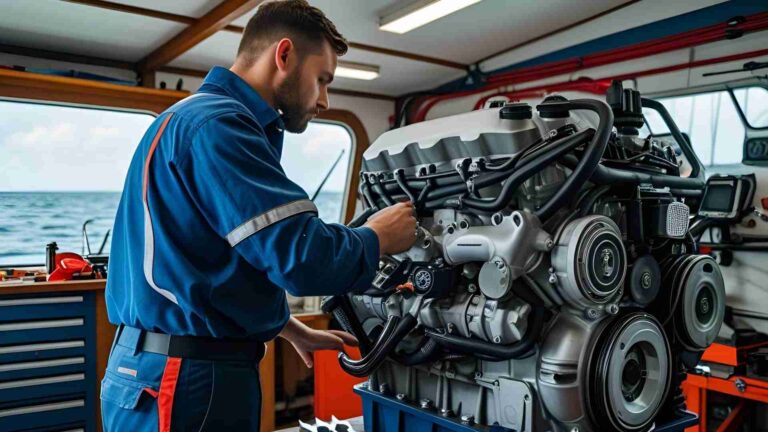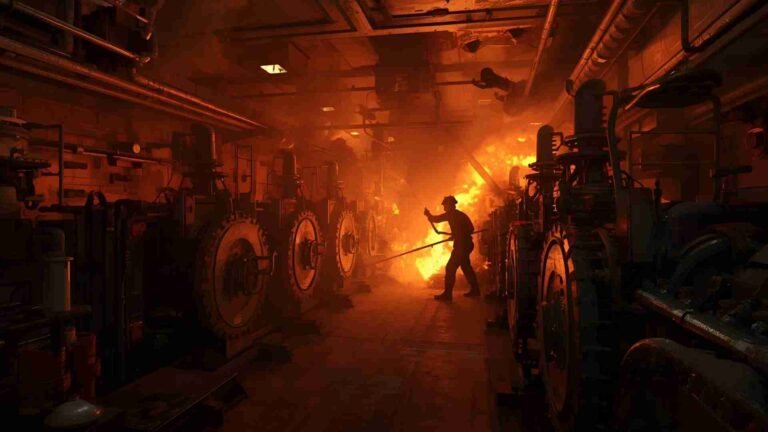Essential Curriculum for Ship Engineering Officers
Comprehensive guide to the essential curriculum for ship engineering officers, covering propulsion, safety, and leadership skills.
Ship engineering officers are the backbone of maritime operations, ensuring the seamless functioning of a vessel’s complex machinery and systems. Their role demands a blend of technical expertise, practical skills, and leadership capabilities to manage propulsion systems, electrical networks, and safety protocols aboard merchant ships. This article explores the comprehensive curriculum designed to equip ship engineering officers with the knowledge and skills required to excel in this critical profession. From foundational engineering principles to advanced shiphandling and regulatory compliance, the curriculum prepares officers for the challenges of modern maritime operations.
Overview of the Ship Engineering Officer Role
Ship engineering officers oversee the operation, maintenance, and repair of a vessel’s propulsion, electrical, and auxiliary systems. They ensure compliance with international regulations, such as those set by the International Maritime Organization (IMO), while maintaining safety and environmental standards. The curriculum for these officers, typically offered at maritime academies or universities, is rigorous and multidisciplinary, combining theoretical knowledge with hands-on training. Programs like the Marine Engineering Systems (MES) Program aim to produce licensed officers capable of serving in the U.S. Merchant Marine and beyond, with opportunities to advance to roles like Chief Engineer or pursue graduate studies.
The curriculum emphasizes technical proficiency, leadership, and adaptability, preparing officers to handle emergencies, manage teams, and implement sustainable technologies. Below, we outline the key subject areas, their significance, and how they contribute to the development of a competent ship engineering officer.
Core Curriculum Components
The curriculum for ship engineering officers is structured to cover a broad spectrum of technical and operational disciplines. These subjects ensure officers are well-versed in the systems that power and sustain a vessel, as well as the leadership and regulatory frameworks that govern maritime operations.
1. Marine Engineering Systems
Marine engineering systems form the cornerstone of the curriculum, focusing on the machinery that drives a ship. This includes:
- Ship Propulsion Systems:
- Diesel Engines: The most common propulsion system in modern ships, requiring knowledge of operation, maintenance, fuel injection, turbocharging, and cooling systems.
- Gas Turbines: Used in high-speed vessels, requiring understanding of high-efficiency power generation.
- Steam Propulsion: Critical for vessels like LNG carriers, covering boilers, turbines, and steam systems.
- Hybrid Propulsion Systems: Combining diesel, electric, or alternative fuel systems for efficiency and environmental compliance.
- Auxiliary Machinery:
- Boilers and steam systems for heating and power generation.
- Pumps and compressors for fluid and air management.
- Refrigeration and air conditioning systems to maintain cargo and crew conditions.
- Marine Electrical Systems:
- Power generation through diesel generators or steam turbines.
- Distribution systems, switchboards, and motor controls.
- Electrical safety practices to prevent hazards in a high-voltage environment.
2. Thermodynamics and Heat Transfer
Understanding thermodynamics is essential for optimizing engine performance and energy efficiency. Key topics include:
- Principles of thermodynamics and heat engines.
- Refrigeration cycles for onboard cooling systems.
- Heat exchangers and boilers for efficient energy transfer.
- Energy conversion processes to maximize fuel efficiency.
A strong grasp of thermodynamics enables officers to troubleshoot inefficiencies and maintain optimal system performance.
3. Fluid Mechanics and Hydraulics
Fluid mechanics is critical for managing the flow of liquids and gases on a ship. The curriculum covers:
- Properties of fluids and fluid flow dynamics.
- Operation and maintenance of pumps, piping systems, and valves.
- Hydraulic systems for steering and other shipboard applications.
- Fluid dynamics in propulsion systems, such as propellers and rudders.
This knowledge ensures officers can maintain critical systems like fuel and ballast water management.
4. Naval Architecture and Ship Construction
Naval architecture provides the foundation for understanding ship design and stability. Key areas include:
- Principles of buoyancy, trim, list, and stability calculations.
- Structural design and materials used in shipbuilding (e.g., steel, composites).
- Hull design and its impact on hydrodynamic performance.
Officers must understand how ship design affects operational efficiency and safety, enabling them to make informed decisions during maintenance and repairs.
5. Marine Diesel Engines and Maintenance
Diesel engines are the workhorse of most merchant vessels. The curriculum emphasizes:
- Operation and maintenance of diesel engines.
- Fuel injection and turbocharging systems.
- Cooling and lubrication systems to prevent wear and overheating.
- Diagnostic techniques for troubleshooting engine faults.
Practical training in engine maintenance ensures officers can address issues at sea, minimizing downtime.
6. Automation and Control Systems
Modern ships rely heavily on automation for efficient operation. The curriculum includes:
- Engine room automation and Programmable Logic Controllers (PLCs).
- Alarm and monitoring systems for real-time diagnostics.
- Automation of auxiliary machinery like pumps and generators.
- Integrated ship systems for centralized control.
Officers learn to manage complex control systems, reducing human error and improving operational reliability.
7. Shipboard Safety and Pollution Prevention
Safety and environmental compliance are non-negotiable in maritime operations. Key topics include:
- Safety of Life at Sea (SOLAS) regulations for crew and vessel safety.
- Fire detection and firefighting systems, including engine room protocols.
- Lifeboat and survival craft maintenance for emergency preparedness.
- MARPOL regulations for pollution prevention, including ballast water management and oil-water separators.
Officers are trained to implement safety protocols and minimize environmental impact, ensuring compliance with global standards.
8. Shipboard Electrical Engineering
Electrical systems are critical for ship operations. The curriculum covers:
- Power generation (AC and DC systems).
- Electric motors, generators, and transformers.
- Electrical distribution networks and high-voltage safety.
- Maintenance and fault-finding techniques for electrical equipment.
This knowledge ensures officers can maintain reliable power systems, even in challenging conditions.
9. Vibration and Noise Control
Vibration and noise can compromise machinery performance and crew comfort. The curriculum addresses:
- Causes of vibration in machinery (e.g., misalignment, imbalance).
- Techniques for noise reduction, such as soundproofing and dampening.
- Monitoring and controlling vibration to prevent equipment failure.
Officers learn to maintain a safe and comfortable working environment while extending machinery lifespan.
10. Maintenance Management and Planned Maintenance Systems
Effective maintenance is key to operational reliability. The curriculum includes:
- Principles of preventive, predictive, and corrective maintenance.
- Use of Planned Maintenance Systems (PMS) for scheduling and tracking.
- Spare parts management and inventory control.
- Documentation and record-keeping for regulatory compliance.
These skills help officers maintain vessel systems efficiently, reducing costs and downtime.
11. Fuel Systems and Emissions Control
With increasing focus on environmental sustainability, officers must understand:
- Types of marine fuels (Heavy Fuel Oil, Marine Gas Oil, LNG).
- Fuel treatment and storage systems.
- Emission reduction technologies, such as scrubbers and selective catalytic reduction (SCR).
- Compliance with IMO MARPOL Annex VI and Energy Efficiency Design Index (EEDI) regulations.
This knowledge ensures vessels meet stringent environmental standards.
12. Emergency Procedures and Crisis Management
Officers must be prepared for emergencies, including:
- Emergency shutdown procedures for machinery.
- Flooding and bilge system operations.
- Firefighting in engine rooms.
- Handling propulsion failures and blackouts.
- Coordination with deck officers during crises.
Practical training ensures officers can respond swiftly and effectively to emergencies.
13. Environmental and Sustainable Shipping Technologies
Sustainability is a growing priority in maritime operations. The curriculum covers:
- Green propulsion technologies, such as battery-electric and LNG systems.
- Hydrogen fuel cells and alternative fuels.
- Energy-saving technologies like wind assist and air lubrication.
- Sustainable ship design principles.
Officers are trained to adopt technologies that reduce environmental impact and improve efficiency.
14. Human Element and Leadership
Leadership is critical for managing engine room teams. Key topics include:
- Team management and effective communication.
- Human factors in engineering, such as fatigue and decision-making.
- Leadership in maintenance and emergency situations.
These skills ensure officers can lead diverse teams under pressure.
15. Shipboard Information Technology and Data Systems
Digitalization is transforming maritime operations. The curriculum includes:
- Engine monitoring and condition-based maintenance systems.
- Cybersecurity to protect shipboard systems.
- Data-driven maintenance and remote diagnostics.
Officers learn to leverage technology for improved operational efficiency.
16. Legal and Regulatory Knowledge
Compliance with international and national regulations is essential. The curriculum covers:
- IMO regulations and conventions (SOLAS, MARPOL).
- Flag state and port state control requirements.
- Classification society rules for ship certification.
- Marine insurance and surveys.
This knowledge ensures officers maintain compliance and avoid legal issues.
Advanced Topics for Senior Officers
Senior engineering officers require additional skills to manage complex operations and lead teams effectively. Advanced topics include:
- Advanced Shiphandling: Understanding ship stability, meteorology, and navigation techniques for safe vessel management.
- Marine Engineering Management: Engine room resource management, automation, and leadership strategies.
- Marine Refrigeration: Operation and maintenance of refrigeration systems for cargo and provisions.
- Engineering Project Management: Planning, executing, and managing engineering projects on board.
- Search and Rescue: Procedures for responding to emergencies at sea.
- Management of Medical Care: Handling medical emergencies on board.
- ARPA and GMDSS: Technologies for navigation and communication.
- ECDIS: Electronic Chart Display and Information System for modern navigation.
These topics prepare officers for leadership roles and ensure they can handle the full spectrum of shipboard responsibilities.
Marine Engineering Systems (MES) Program
The MES Program, offered by maritime academies, is designed to prepare midshipmen for careers as licensed engineering officers in the U.S. Merchant Marine. The program’s objectives include:
- Preparing officers to serve as licensed engineers, with the potential to advance to Chief Engineer.
- Equipping graduates for professional engineering roles in maritime-related industries.
- Developing skills in the analysis and design of marine propulsion, auxiliary, and cargo systems.
- Supporting graduate study and Professional Engineer licensure.
The program incorporates a Capstone Design Project, where students design a marine power plant and its associated systems over three terms. The project culminates in a presentation to faculty and industry professionals, showcasing practical application of their skills.
MES Program Student Outcomes
Graduates of the MES Program are expected to demonstrate:
- Ability to apply mathematics, science, and engineering knowledge.
- Competence in designing and conducting experiments, analyzing data.
- Ability to design systems or components to meet specific needs.
- Capability to function in multidisciplinary teams.
- Skills to identify, formulate, and solve engineering problems.
- Understanding of professional and ethical responsibilities.
- Effective communication skills.
- Broad education to understand the global and societal impact of engineering solutions.
- Recognition of the need for lifelong learning.
- Knowledge of contemporary issues.
- Proficiency in modern engineering tools and techniques.
- Ability to apply probability and statistics to marine engineering problems.
- Knowledge of engineering mechanics and thermodynamics in marine contexts.
- Familiarity with instrumentation for naval architecture and marine engineering.
MES Program Enrollment and Graduation Data
| Academic Year | Sophomore | Junior | Senior | Total | Degrees Conferred |
|---|---|---|---|---|---|
| 2013-14 | 70 | 55 | 60 | 185 | 60 |
| 2014-15 | 41 | 70 | 52 | 163 | 52 |
| 2015-16 | 40 | 38 | 68 | 146 | 68 |
| 2016-17 | 42 | 37 | 35 | 114 | 35 |
| 2017-18 | 32 | 38 | 35 | 105 | 35 |
| 2018-19 | 39 | 33 | 33 | 105 | 33 |
| 2019-20 | 43 | 37 | 28 | 108 | 28 |
| 2020-21 | 37 | 42 | 35 | 114 | 35 |
| 2021-22 | 49 | 31 | 38 | 118 | 38 |
| 2022-23 | 29 | 45 | 29 | 103 | 29 |
Note: All students are full-time, and enrollment begins in the sophomore year.
Curriculum Structure
The MES curriculum is typically divided into four years, with additional sea-year courses to provide practical experience. Below is a sample curriculum outline:
Fourth Class Year (Freshman)
- Introduction to Marine Engineering I & II: Foundational concepts in marine systems.
- Engineering Graphics and Shop: Practical skills in drafting and workshop techniques.
- Calculus I & II, Differential Equations: Mathematical foundations for engineering.
- Physics I & II, General Chemistry: Scientific principles for engineering applications.
- Basic Firefighting, First Aid, and Swimming: Safety and survival skills.
- Introduction to Nautical Science and Naval Science: Maritime context and leadership.
Second and Third Class Years (Sophomore and Junior)
- Electric Circuits and Machines: Electrical engineering principles.
- Thermodynamics, Fluid Mechanics, Heat Transfer: Core engineering disciplines.
- Materials Engineering and Strength of Materials: Structural analysis.
- Probability and Statistics, Calculus III: Advanced mathematical tools.
- Basic Tanker Operations and Safety of Life at Sea: Regulatory and safety training.
- Sea Year Courses: Practical training in machine shop, propulsion, and shipboard systems.
First Class Year (Senior)
- Marine Steam Plants, Internal Combustion Engines, Gas Turbines: Advanced propulsion systems.
- Marine Refrigeration and Plant Automation: Specialized systems.
- Naval Architecture and Engineering Management: Design and leadership skills.
- Capstone Design Project: Three-term project designing a marine power plant.
- Advanced Firefighting, Naval Leadership, and Ethics: Senior-level responsibilities.
Sea Year Courses
- Machine Shop, Main Propulsion, Shipboard Systems, and Electrical Engineering.
- Maintenance Management and Refrigeration.
- Maritime Business and Naval Architecture.
Chart: Curriculum Progression
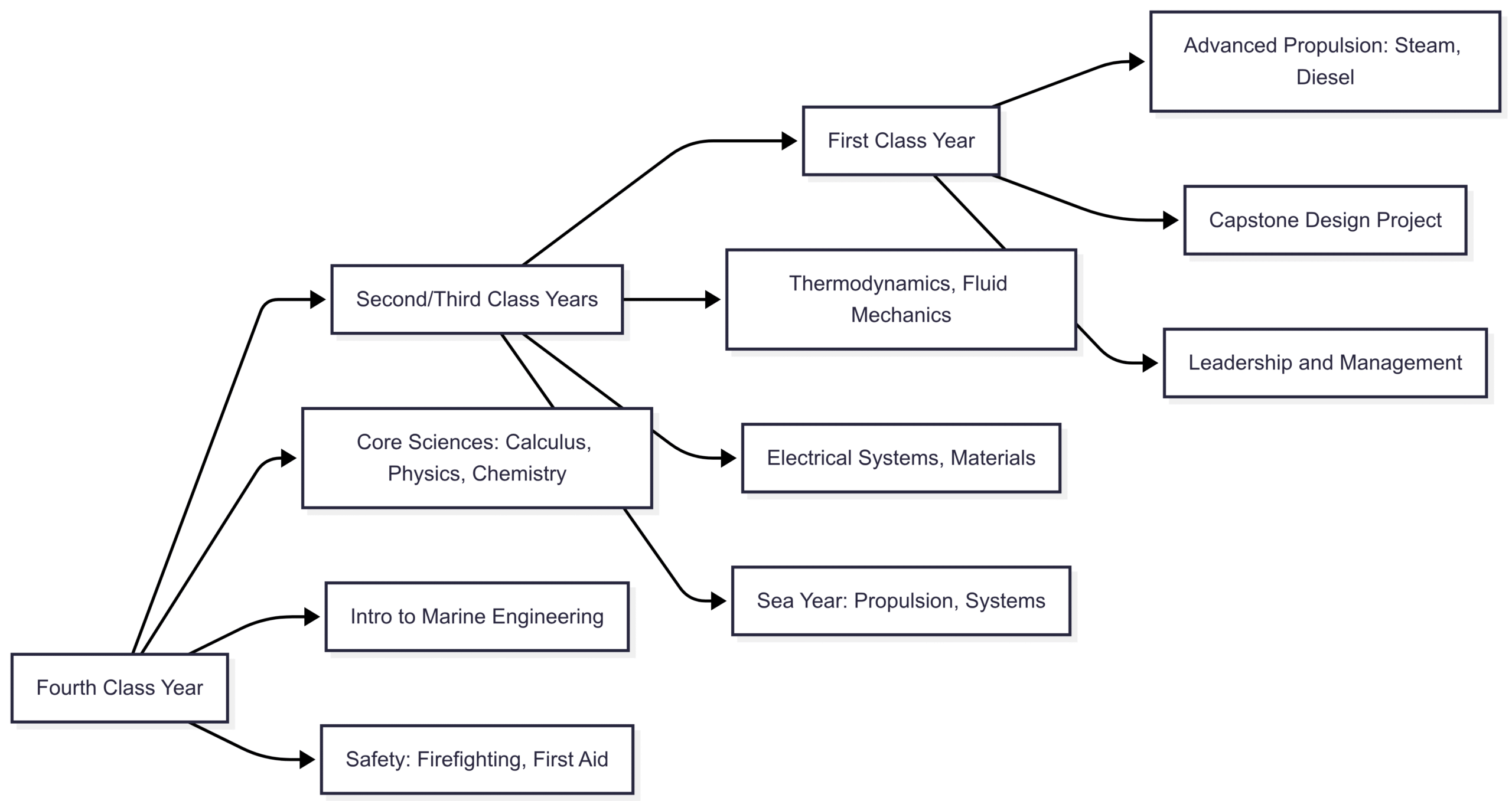
This chart illustrates the progression from foundational sciences and safety training to advanced propulsion systems and leadership, culminating in the capstone project.
Importance of Accreditation
The MES Program is accredited by the Engineering Accreditation Commission (EAC) of the Accreditation Board for Engineering and Technology (ABET). This accreditation ensures the curriculum meets rigorous standards, preparing graduates for licensure and professional roles. The program’s focus on practical experience, through sea-year courses and the capstone project, aligns with industry needs and regulatory requirements.
Conclusion
The curriculum for ship engineering officers is a comprehensive blend of technical, operational, and leadership training. Covering marine propulsion, electrical systems, safety protocols, and sustainable technologies, it equips officers to manage the complex machinery of merchant vessels while ensuring compliance with international regulations. Programs like the MES provide a structured path to licensure and career advancement, with hands-on training and capstone projects that bridge theory and practice. As the maritime industry evolves toward sustainability and digitalization, this curriculum ensures officers are prepared to lead and innovate in a dynamic field.
Happy Boating!
Share Essential Curriculum for Ship Engineering Officers with your friends and leave a comment below with your thoughts.
Read Ship Marine Engineering Systems until we meet in the next article.
